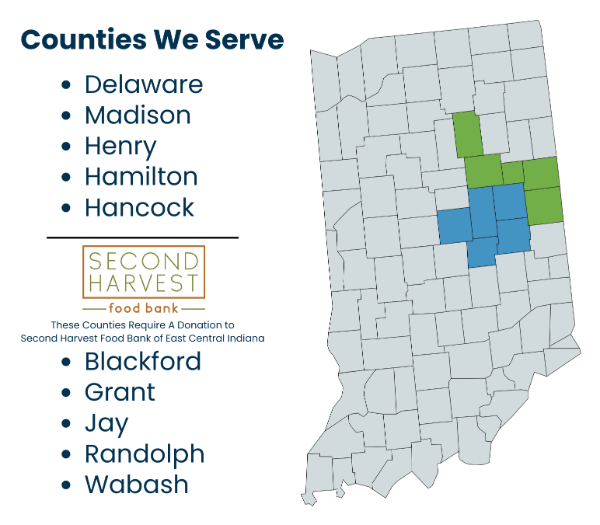.png)
.png)
At PrimeTrust, stories matter.
Stories like yours. You have goals for your family and your future. Goals that deserve a financial provider who knows more about you than just your credit score.
That’s exactly the kind of personal attention you’ll receive at PrimeTrust. We’re a not-for-profit financial cooperative that’s owned and governed by our members. Deposits are used to provide loans to other members and excess profits are reinvested in better rates and low- and no-fee services.
Eligibility Requirements
As a National Credit Union Administration (NCUA) community-charted credit union, there are a few qualifications for membership at PrimeTrust Federal Credit Union:
-
You live, work, worship, or attend school in one of these counties in Indiana:
-
Delaware
-
Madison
-
Hamilton
-
Hancock
-
Henry
-
-
You are a resident of Blackford, Grant, Jay, Randolph, or Wabash County and make a donation to Second Harvest Food Bank.
-
You are a business or other legal entity located in one of the counties listed above.
Membership is typically established by opening a share savings account. You will need to provide identifying information such as your name, address, and date of birth, and may be asked to provide a driver's license or other identification documents

Vision Statement
PrimeTrust Federal Credit Union's vision is to build financial success. One member, one business, one community, and one dream at a time.
Seven Cooperative Principles for Credit Unions
1. Voluntary and Open Membership
Co-operatives are voluntary organizations, open to all persons able to use their services and are willing to accept the responsibilities of membership, without gender, social, racial, political or religious discrimination.
2. Democratic Member Control
Co-operatives are democratic organizations controlled by their members, who actively participate in setting their policies and making decisions. Men and women serving as elected representatives are accountable to the membership. In primary co-operatives members have equal voting rights (one member, one vote) and co-operatives at other levels are also organized in a democratic manner.
3. Member Economic Participation
Members contribute equitably to, and democratically control, the capital of their co-operative. At least part of that capital is usually the common property of the co-operative. Members usually receive limited compensation, if any, on capital subscribed as a condition of membership. Members allocate surpluses for any or all of the following purposes: developing their co-operative, possibly by setting up reserves, part of which at least would be indivisible; benefiting members in proportion to their transactions with the co-operative; and supporting other activities approved by the membership.
4. Autonomy and Independence
Co-operatives are autonomous, self-help organizations controlled by their members. If they enter into agreements with other organizations, including governments, or raise capital from external sources, they do so on terms that ensure democratic control by their members and maintain their co-operative autonomy.
5. Education, Training and Information
Co-operatives provide education and training for their members, elected representatives, managers, and employees so they can contribute effectively to the development of their co-operatives. They inform the general public - particularly young people and opinion leaders - about the nature and benefits of co-operation.
6. Co-operation among Co-operatives
Co-operatives serve their members most effectively and strengthen the co-operative movement by working together through local, national, regional and international structures.
7. Concern for Community
Co-operatives work for the sustainable development of their communities through policies approved by their members.
Contact the PrimeTrust team to learn more.
or

